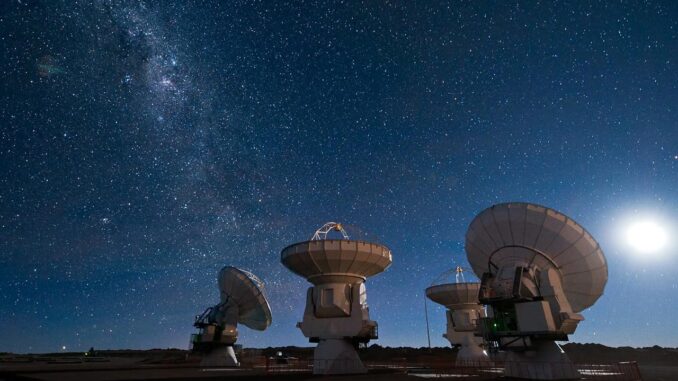
All through history, the development of technology has been a force that has propelled humanity forward. The invention of tools for cultivating, harvesting, and processing crops was instrumental in ushering in the agrarian age, and the formation of the first civilizations approximately 10,000 years ago. In more recent history, the discovery and application of scientific principles of mechanics and physics led to the invention of machines that advanced humanity into the industrial revolution of the 1700s and 1800s. The current computer/information technology age is yet one more leaf in the pages of humanity’s history turned by technology’s hands.
Although technology has been pivotal to humanity’s survival and growth on the planet, the wrong application of our technological knowledge, exploitative behavior of humans as the supposed “top boys” of the food chain, and ecological egoism have disrupted the “stable climate” described by naturalist David Attenborough to have given “birth to civilization”. According to the World Health Organisation, between 2030 and 2050, it is projected that around 250,000 additional deaths per year will result from malnutrition, malaria, diarrhea, and heat stress as global temperature continues to rise. In the same vein, environmental experts warn that the climate crisis is triggering mass displacement of human settlement, especially in coastal areas, while extreme weather and environmental degradation are contributing to the wastage of nearly a third of food grown.
To arrest the present and looming climate disaster, the consensus among experts is that humanity must rethink technology and ensure that its application is sustainable. Previously, technology was viewed from narrow lenses with cost-benefit analysis solely based on economic and commercial frameworks. This resulted in unintended net negative social and environmental outcomes that widen inequalities, and lack of access and transferred negative spillovers of industrialization to poorer countries. Therefore, the role of technology must be understood to ensure sustainable and equitable development by equipping us with the right tools to make maximally beneficial choices.
The first argument for innovation and innovative technologies revolves around the problem of scarcity of resources and how it can be adequately addressed. It is common knowledge that human wants surpass the resources to fulfill them, and this lack has provoked competition and wastage, rather than cooperation and efficiency. Where there has been less conflict over resource ownership, concerns about resource depletion and their non-renewable nature have been paramount. By adopting technology and circular economy thinking, alternatives can be developed to ensure availability, while natural resources are preserved. A good example is the use of renewable energy sources like solar, wind, and biofuels to provide electricity and the positives such innovation holds in the quest to fast-track decarbonization and improve quality of life.
Another important argument is that sustainable technology will create more meaningful and inclusive work opportunities. In a 2019 article, Stears Business – a Nigerian economic business publication – established the nexus between crude-oil dominance and the diminishing of women’s role in the economy in Nigeria. By creating the right technologies there would be a democratization of access to inclusive economic opportunities, and the availability of more jobs would open the labour market to women and marginalized groups. Based on the International Labour Organisation (ILO) projections, a greener economy could create 24 million new jobs globally by 2030 which would mean better per capita GDP and improvement in some of the key development indices.
Also, green technologies will result in cheaper production which would create competitive advantages for forward-thinking corporations and deliver direct benefits to consumers globally. In 2021, the World Economic Forum in an article, based on research by the University of Oxford’s Institute of New Economic Thinking, noted that renewable energy prices have declined more rapidly than anticipated and they are becoming cheaper than fossil fuels. In the same breath, it was argued that a “rapid transition to emissions-free ‘green’ energy could save many trillions of dollars in energy costs – and help combat climate change.” The expectation of even cheaper solutions in the future is premised on a “virtuous cycle” that more deployment of green solutions would result in lower prices which, in turn, creates competitiveness in new markets, then boost demands and results in even lower prices.
While the arguments for technology in sustainable development are inexhaustive, a final case I would make is the effectiveness of technology in predicting, measuring, tracking, and correcting harmful effects of human production activities. It is through the integration of technology into the production processes that we can forecast and forestall climate disasters and tackle the root causes that often seem benign. The IBM Environmental Intelligence Suite unveiled in 2021 is an example of how Artificial Intelligence (AI) and Machine Learning (ML) can aid businesses in assessing the impact of their activities on the environment, improving regulatory environmental compliance, and reporting, and taking adequate steps to ensure their business operation is not unduly affected by adverse climate events.
With new research and better frameworks for assessing the impact of our activities, the UN argues that “readily available technological solutions already exist for more than 70 percent of today’s emissions.” In my opinion, while there is the need to accelerate research and development into technologies of the future, efforts must be put in place to ensure that people utilize the available green technologies.
My view is that the difference between what can be achieved by integrating these nature-friendly solutions into our production activities and lifestyles, and the current reality of worrisome carbon footprints is the lack of political willpower and misplaced incentives that exist on a macro scale. This issue must be addressed and policies to drive a top-to-bottom implementation of the climate agenda is key. From a micro and individual person perspective, there is the need for greater awareness of what the stakes are when non-renewable resources are depleted and why we must take more responsibility for our future.
• Idam is Managing Director and Chief Executive Officer of Zen Ideas & Solutions Limited.
END

Be the first to comment